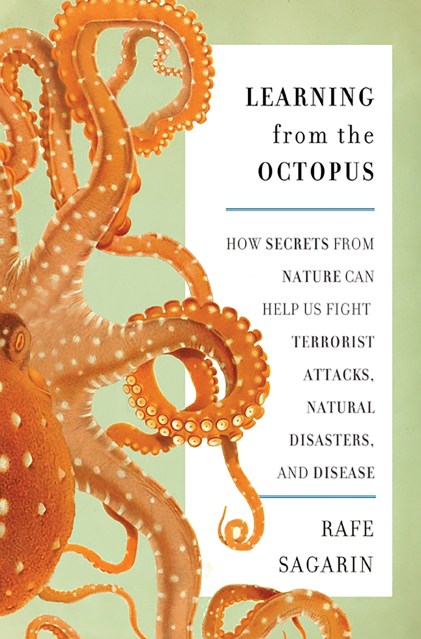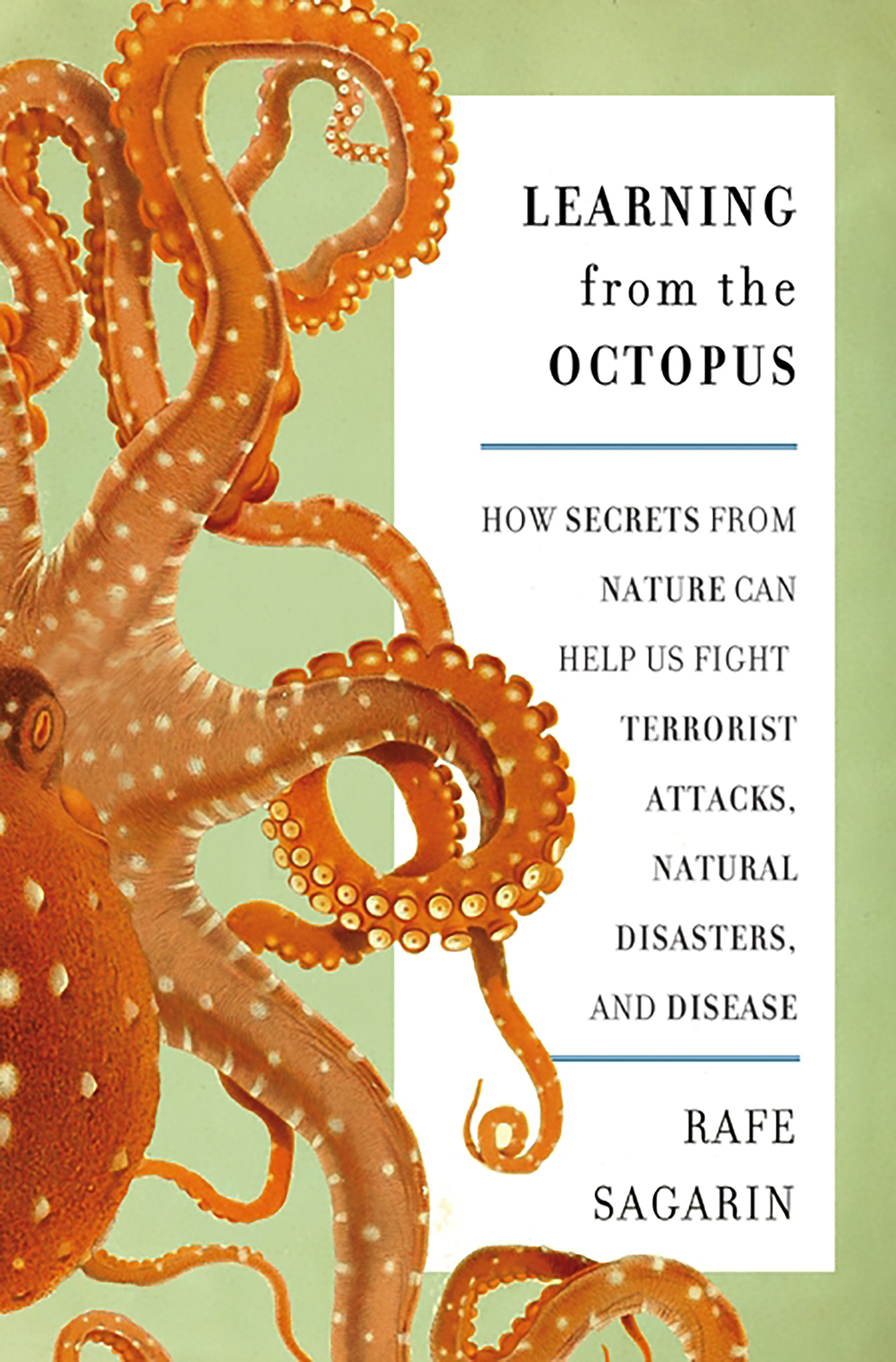Promotion
25% off sitewide. Make sure to order by 11:59am, 12/12 for holiday delivery! Code BEST25 automatically applied at checkout!
By clicking “Accept,” you agree to the use of cookies and similar technologies on your device as set forth in our Cookie Policy and our Privacy Policy. Please note that certain cookies are essential for this website to function properly and do not require user consent to be deployed.
Learning From the Octopus
How Secrets from Nature Can Help Us Fight Terrorist Attacks, Natural Disasters, and Disease
Contributors
By Rafe Sagarin
Formats and Prices
- On Sale
- Mar 27, 2012
- Page Count
- 320 pages
- Publisher
- Basic Books
- ISBN-13
- 9780465021833
Price
$36.00Price
$46.00 CADFormat
Format:
- Hardcover $36.00 $46.00 CAD
- ebook $20.99 $26.99 CAD
This item is a preorder. Your payment method will be charged immediately, and the product is expected to ship on or around March 27, 2012. This date is subject to change due to shipping delays beyond our control.
Buy from Other Retailers:
-
Library Journal
“Sagarin uses his ecological knowledge to shed light on national security as well as other hard-to-predict challenges. Highly recommended for ecologists, nature lovers, and those interested in business, organizational change, and security planning.”
Nature
“Drawing on life science and evidence from the military and emergency services, Sagarin defines adaptability as the “sweet spot” between reaction and prediction.”
New Scientist
“Sagarin explains biology's lessons for successful national security with a brisk, clear style, designed for the broadest possible audience. The book will be as informative to a field biologist as a field commander. The natural history examples are linked cleverly and effectively, making surprising and provocative points to prompt discussion of how the flexibility of natural defenses can be used for strategic benefit.”
Discover
“[An] open challenge to the status quo.”
The Scientist
“Learning from the Octopus is a paean to biomimicry and a handbook on ‘natural security' from an unlikely, but enlightening, source.” -
Courtney E. Martin, author of Project Rebirth: Survival and the Strength of the Human Spirit from 9/11 Survivors
“Learning from the Octopus is not just a brilliant book about natural security, though it is that. It is also a transformative meditation on what attributes are necessary to live a content, modern life—starting with adaptability, imperfection, and interdependence. Rafe Sagarin is not only a rarity in regards to the intersection of his professional gifts—science and writing—but his power to see beyond fear and conformity to what really makes us safe in the world.”
Simon Levin, Moffett Professor of Biology, Princeton University
“In a brilliant and engaging style, Rafe Sagarin moves seamlessly between natural history and security analysis, convincingly making the case that we have much to learn in national security from how evolution has helped organisms meet environmental challenges. Learning from the Octopus is must reading for those charged with protecting our nation, and a delightful excursion for anyone interested in the wonders of the natural world.”
Publishers Weekly
“A marine biologist applies his expertise to national security, delivering some ingenious ideas.... [F]ew readers will deny that Sagarin is onto something.” -
Foreign Policy in Focus (online)
“Years of marine research provide [Sagarin] with a unique perspective on security issues. His new book's conclusion: we can learn from nature about being more secure by being more adaptable. Nature, after 3.5 billion years of dealing with risk, is an experienced teacher.”
Natural History
“Sagarin identifies several characteristics of successful species—and you can almost visualize them as bullets on a motivational PowerPoint slide.... The parallels with modern-day security concerns are evident, and Sagarin is quick to cite cases of military efforts hampered by bureaucratic inertia, insurgency strategies that successfully build on cooperative relations with local populations, and the like.... In short, this book lays out some sensible policy suggestions based on biological knowledge.” -
Eric Liu, co-author of The Gardens of Democracy: A New American Story of Citizenship, the Economy, and the Role of Government
“This book is a provocation and a delight. Rafe Sagarin invites us to look at national security with the eyes not of a state but of nature itself: for recursive patterns, adaptations, and the simple keys to complexity. It's thrilling to apply the lessons of octopuses, tidepools and other biological systems to defense, intelligence, and government generally. It's even more thrilling to imagine what our policymakers could learn from this book.”
John Arquilla, Professor of Defense Analysis, U.S. Naval Postgraduate School
“Simply brilliant. Rafe Sagarin is one of the world's leading lateral thinkers. He can study tidepool life and find insights from it for fighting terrorism. He has harnessed our understanding of nature's immutable forces—selection, learning and adaptation—and turned them to the task of guiding us to a fresh new security paradigm. Above all, Sagarin sees how networked nature is, and how building our own networks is the best way to defeat the perils our balky security institutions have done so little to overcome.”
Newsletter Signup
By clicking ‘Sign Up,’ I acknowledge that I have read and agree to Hachette Book Group’s Privacy Policy and Terms of Use






